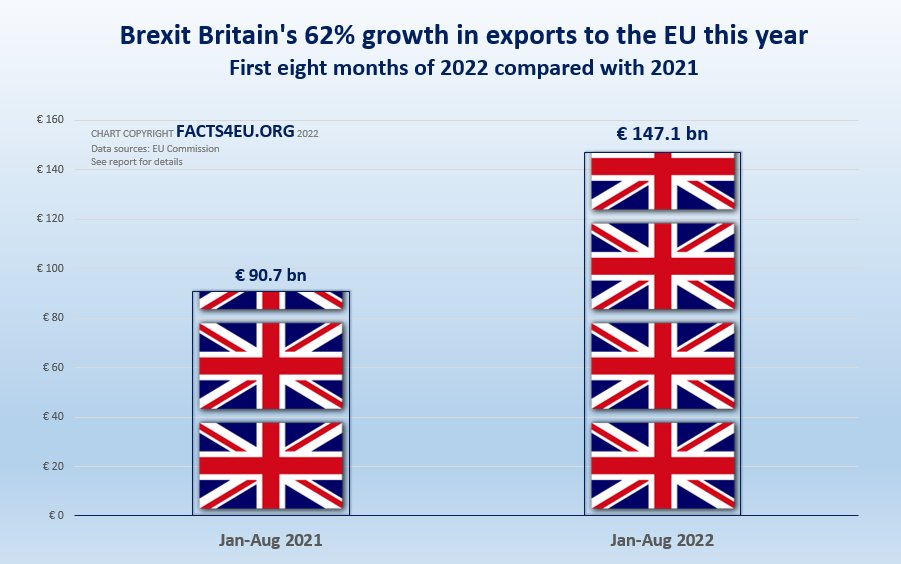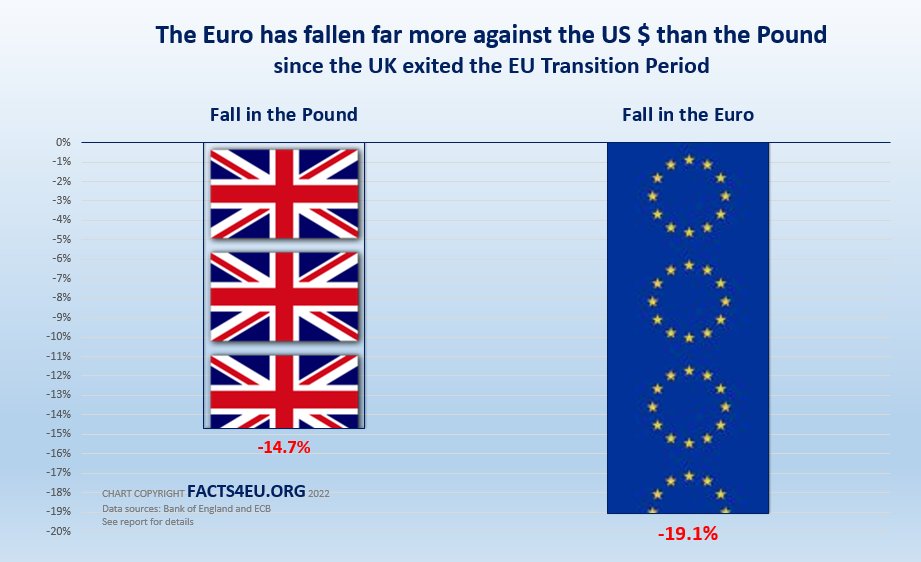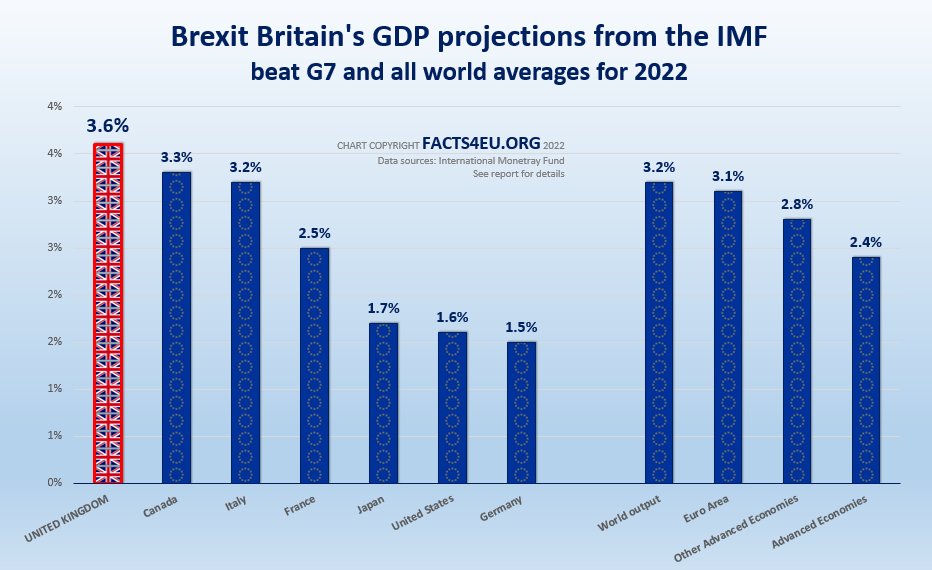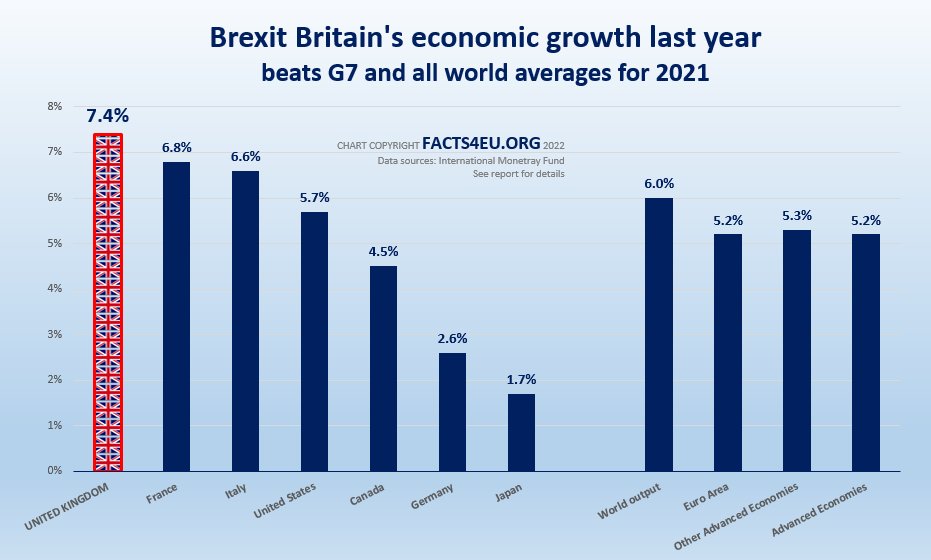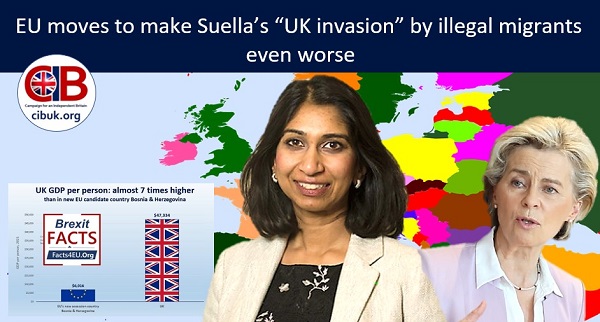VIDEO : BBC finally goes nuclear in its attempts to destroy Brexit
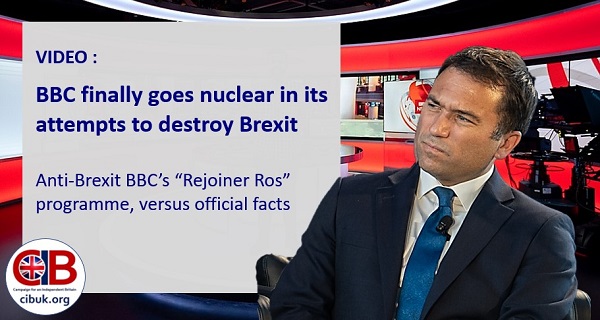
Montage © CIBUK.Org
This report has been co-published with our affiliated organisation, Brexit Facts4EU.Org. We are most grateful for their original research into the raw data which backs what follows.
We demolish anti-Brexit BBC’s “Rejoiner Ros” programme, using official facts
The BBC plumbs new depths of bias, in dire broadcast we’re reporting to OfCom
Below is a video posted by the BBC’s Ros Atkins yesterday. Its message is simple: Brexit is an economic disaster. So bad is this latest piece of anti-Brexit propaganda that CIBUK.Org and Facts4EU.Org are reporting it to OfCom as a serious breach of the BBC’s Charter and we urge all readers to do the same.
We demand the programme be pulled, that all involved in its making be censured, and that the BBC compensate us for having to produce this detailed rebuttal.
We further demand that the BBC should be made to run a second programme of equal or greater prominence, containing all the official facts we quote below. This second programme should also interview economists who are not from the pro-EU stable. These might include economists such as Julian Jessop, Andrew Lilico, Liam Halligan, Professor Patrick Minford, the Institute of Economic Affairs (IEA), and others.
Summary
This BBC programme clearly set out with an agenda to try to prove that Brexit is a disaster
- Only this side of the argument was presented
- Only economic commentators who favoured the programme’s view were interviewed
- The only figures presented were from organisations favouring the programme’s view
- At no point was it suggested there might be opposing views
- Nor was any official data presented which countered the BBC’s biased hypothesis
- No comparisons were made with other countries – in particular the EU
Here is the Tweet put out by the BBC’s Mr Atkins yesterday
This week, Rishi Sunak talked of building 'an economy that embraces the opportunities of Brexit'. Here's 5 mins on Brexit's impact on the economy so far. Produced by Mary Fuller and Nicholas Barrett. You can watch the full edition of 'On the Week' here: https://t.co/b1VMwMkmz0 pic.twitter.com/udgcrgmKjF
— Ros Atkins (@BBCRosAtkins) October 28, 2022
The anti-Brexit premise of this BBC programme was clear from the outset
Ros Atkins started with:
“Mr. Sunak wants to build the economy, but there’s no shortage of people who say that Brexit isn’t helping to do that.”
He then went into his first clip of an unnamed person on TV saying:
“Brexit is and was and will be a total disaster. Brexit is doing the economy real damage.”
Then a clip of an unidentified commentator…
“Brexit, as negotiated, is frankly a disaster.”
1. The OBR has shown itself to be consistently very poor at forecasting
In his one-sided programme Mr Atkins makes much of the Office for Budget Responsibility’s forecasts. The OBR was set up by arch-Remainer George Osborne when he was Chancellor.
Here is Mr Atkins on the OBR :-
“The Office for Budget Responsibility is the official body that provides independent economic analysis. It’s concluded there’s been a 15% reduction in trade intensity as a result of Brexit.”
Ros Atkins, BBC
The OBR has consistently produced wildly inaccurate forecasts. Here is part of a summary we researched and published only two weeks ago:-
Summary
The OBR’s forecasts versus the reality
1. Government borrowing
-
-
- OBR borrowing forecast July 2022 : £131.2bn LESS than forecast in Mar 2021
- It’s even £48.3bn LESS than they forecast only in October last year
- May 2022 : £3,312,568 – a 24.7% increase since the EU Referendum
-
2. Tax revenues and Government spending
-
-
- Tax revenues are £77bn MORE than the OBR forecast
- In addition, the OBR overstated Government spending by £48.7bn
-
[Sources: OBR 21 July 2022 | Sir John Redwood MP ]
.
2. Facts are better than forecasts
Facts are facts and forecasts are unreliable. We could forecast that a BBC executive will have lost half his hair by 2035 and have put on an extra stone-and-a-half in weight. Who knows?
This is why we prefer to deal in facts.
3. The facts on international trade
On trade, Mr Atkins kicks off in typical Armageddon fashion.
“… this is the non partisan Institute for Fiscal Studies.”
“We’ve lost a large fraction of our trade with the European Union, including with high value professional services. Trade that’s making us poorer.” – IFS
Mr Atkins, why didn’t you look at the officially reported data from organisations like the Office for National Statistics or HMRC – or even the EU Commission? Facts4EU.Org summarised this for you on 16 August 2022. In HMRC’s latest release on international trade, they reported that UK goods exports hit their highest-ever level in the second quarter of this year. The summary of their report stated:-
”Brexit Britain’s total goods exports in the last quarter (Apr-Jun 2022) reached just under £100bn (£99.8bn). This is the highest level on record.”
Then, using the EU Commission’s own data released on 14 October 2022, we went on to show that :-
“Sales from the UK to the EU27 grew more than three and a half times as fast as the sales flowing in the other direction – in just one year.”
Summary
UK’s exports to EU continue to rocket, EU’s international trade balance continues to plummet
UK’s exports to the EU, Jan-Aug 2022
-
-
- Jan-Aug 2021 : €90.7bn
- Jan-Aug 2022 : €147.1bn
- Increase this year : + 62.2%
-
[Source: EU Commission’s official statistics agency, 14 Oct 2022.]
© Brexit Facts4EU.Org 2022 – click to enlarge
.
“Now Lord Frost and many Brexiteers would say that Brexit is about much more than the economy. It was about sovereignty, about taking back control. But the economy was part of it. This is Michael Gove in 2016.”
– Ros Atkins, BBC
“The truth is that if we vote to leave, we will be in an economically stronger position.”
– Michael Gove
Mr Atkins:
“That also hasn’t happened yet. Now no doubt resetting your trading relationship with the world takes time. There are already 71 new agreements with other countries, though most of them are direct copies of deals done when the UK was part of the EU. There are completely new deals with Japan, New Zealand and Australia. The Australia. Deal, for example, is estimated to increase the UK GDP by 0.08% by 2035. Then there’s India. The government said this week progress is being made, but there’s no sign of a deal with EU.”
– Ros Atkins, BBC
4. Business investment
Mr Atkins then moved on to investment in the economy. On this he is correct if taking the narrower measure of investment which excludes government and property.
“And if that’s trade next is business investment. It peaked in 2016, the year of the Brexit referendum. It’s never returned to that level.”
Mr Atkins, if taking the broader definition used by the OECD as well as by the ONS then it has grown slightly since the Referendum. If you don’t believe us, perhaps you’ll believe the Office for National Statistics? In their latest report published on 30 Sept 2022 (“Business investment in the UK: April to June 2022”) they provided the figures.
Summary
The official index on GFCF investment (the measure also used by the OECD)
“UK business investment, chained volume measure, seasonally adjusted” (GFCF)
-
-
- Q2 2016 : 158
- Q2 2022 : 164 (+4%)
-
[Source: Latest ONS official data, released 30 Sept 2022.]
4.1 What is investment?
Here is the Paris-based OECD’s definition of investment. The OECD is an organisation regularly quoted by the BBC whenever it says something detrimental about Brexit.
“Definition of Investment (GFCF)
“Gross fixed capital formation (GFCF), also called “investment”, is defined as the acquisition of produced assets (including purchases of second-hand assets), including the production of such assets by producers for their own use, minus disposals. The relevant assets relate to assets that are intended for use in the production of other goods and services for a period of more than a year. The term “produced assets” means that only those assets that come into existence as a result of a production process are included. It therefore does not include, for example, the purchase of land and natural resources.”
Commenting exclusively on our report today, former Secretary of State and former Single Market Minister, the Rt Hon Sir John Redwood MP, said:
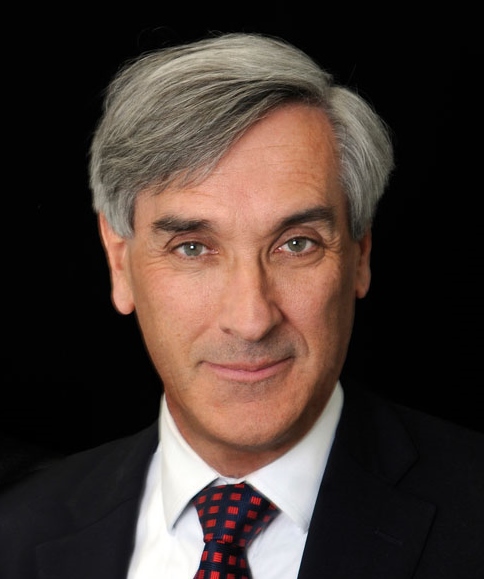
“The relentless anti Brexit lines from the BBC are absurd.
“Brexit is blamed for many of the energy, inflation and economic problems we face yet these problems are greater on the continent where many of them started.”
– The Rt Hon Sir John Redwood MP, Sun 30 Oct 2022
5. Currency
Yes, Mr Atkins, the pound has fallen in value against the dollar since the Referendum, but it had been on a downward path long before that, as it was widely recognised to have been overvalued. Meanwhile the dollar has strengthened and the euro has weakened. You could have included the drop in the value of the euro, but you didn’t.
Devaluation of the pound and euro against the dollar since the UK exited the transition period and left the EU’s Single Market and Customs Union (01 Jan 2021) compared with 27 Oct 2022 (Thursday)
- Pound : -14.7%
- Euro : -19.1%
The euro has actually fallen by more than the pound since the UK exited the EU’s Single Market and Customs Union.
[Sources: Bank of England spot rates, ECB spot rates.]
© Brexit Facts4EU.Org 2022 – click to enlarge
6. Growth
“Put all of these factors together and this is the Office for Budget Responsibility’s conclusion. It forecasts that Brexit will reduce UK GDP by 4% over 15 years and when faced with questions about the economy ministers have pointed to international issues.”
– Ros Atkins, BBC
Once again Mr Atkins uses the wholly unreliable OBR as his guide, as well as using forecasts 15 years into the future. The OBR can’t even get its forecasts vaguely right from one year to the next. Instead, he could have reported the following facts:-
.
Summary
United Kingdom – growth in GDP compared to the other G7 countries
1. IMF forecasts Brexit Britain to grow fastest this year (2022)
-
-
- UK GDP growth forecast 2022 : 3.6%
- Faster than any other G7 country
- Faster than the “World average” : 3.2%
- Faster than the average of the group of “Advanced Economies” : 2.4%
- Faster than the group of “Other Advanced Economies” : 2.8%
-
[Source: IMF World Economic Outlook, released Tues 11 Oct 2022.]
© Brexit Facts4EU.Org 2022 – click to enlarge
2. IMF shows Brexit Britain was the best-performing major economy last year (2021)
-
-
- UK GDP growth in 2021 : 7.4%
- Faster than any other G7 country
- Faster than the “World average” : 6.0%
- Faster than the average of the group of “Advanced Economies” : 5.2%
- Faster than the group of “Other Advanced Economies” : 5.3%
-
[Source: IMF World Economic Outlook, released Tues 11 Oct 2022.]
© Brexit Facts4EU.Org 2022 – click to enlarge
For the original version of this article, click here: https://facts4eu.org/news/2022_oct_bbc_bias



